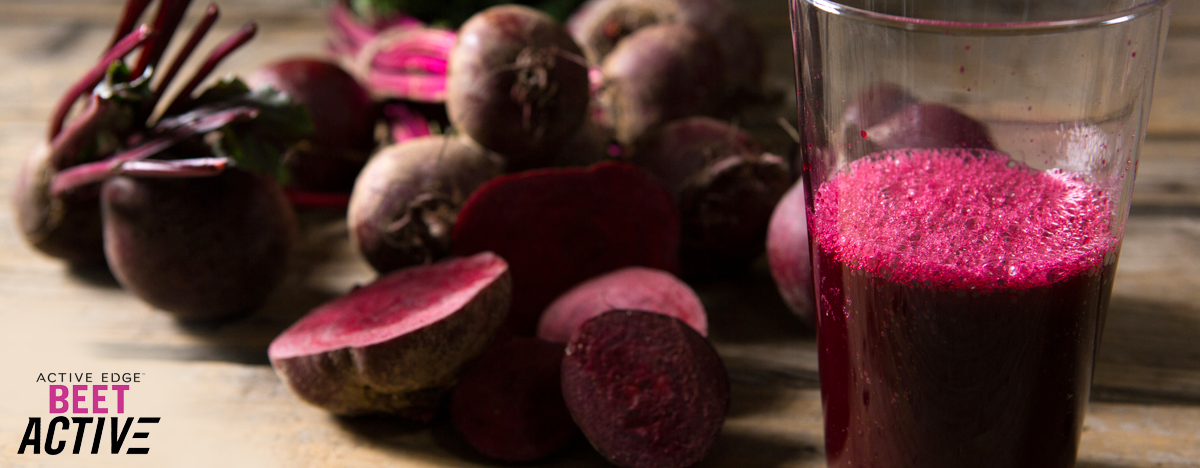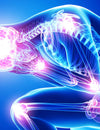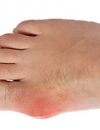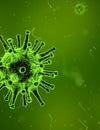
By Dr Michael Mosley, written for The Times, 13th February 2018
Beetroot is one of the few vegetables that live up to the claim of being a superfood, says Dr Michael Mosley. The evidence that beetroot can enhance the performance of young, fit people is now quite strong.
I love the colour purple. It makes me think of royalty and magic, eroticism and seduction. In ancient times purple dye could only be extracted in minute quantities from a type of sea snail called the murex. It took thousands of snails and hundreds of hours of labour to dye clothing, which may explain why purple was a colour favoured by Roman emperors.
It was not a colour that was widely available until a synthetic version was produced in 1856 by an 18-year-old called William Perkin in the attic of his parents’ house in the East End of London. It was a happy accident because at the time he was looking for a cure for malaria.
So, the colour purple has a long and noble history. It is also the colour that many experts claim will be dominating our shopping baskets in 2018. There are already lots of trendy purple vegetables on supermarket shelves, from carrots to sweet potatoes, cauliflower and asparagus, but the king of the purple vegetable, as far as I’m concerned, is and has always been the beetroot. You can incorporate it into risottos, burgers, bread and even cake (it goes really well with chocolate). I enjoy the occasional beetroot shot and it makes a fabulous fermented food.
It is also one of the few vegetables that live up to claims of being a “superfood”. The naturally occurring chemicals that give beets their rich dark colour are betalains. These are powerful antioxidants that are present throughout the plant, and scientists from the University of Bologna recently showed that they can kill colon cancer cells (at least they can in laboratory studies). Yet they aren’t the magic ingredient that gives beetroot its most impressive health qualities — the real secret to beetroot is that it is incredibly rich in nitrate.
On the face of it, consuming lots of nitrate doesn’t sound like a good idea. After all, when nitrate is added as a preservative to processed meats it increases the risk of bowel cancer. However, when we consume nitrate-rich vegetables such as beetroot something remarkable happens. Bacteria that live in our mouths turn nitrate into nitrite. The nitrite, in turn, is changed by the body into nitric oxide, which, among other things, increases blood flow to various organs, including the penis. Adequate levels of nitric oxide are essential for producing and maintaining an erection, which may explain why the Romans used beetroot juice as an aphrodisiac. Although I haven’t yet seen any clinical trials showing that consuming beetroot juice will have a Viagra-like effect, there is evidence that the expansion of blood vessels it causes results in other significant changes.
A few years ago we did an experiment on my BBC Two series, Trust Me, I’m a Doctor, where we took a group of volunteers with raised blood pressure and asked them to feast on a diet rich in beetroot. After a few weeks we found that munching a couple of beets a day had led to a fall in average blood pressure of about 5 mmHg, which, if maintained, would translate into a reduction in their risk of stroke and heart attack of about 10 per cent. Impressive stuff.
The benefits of beetroot aren’t confined to helping those with raised blood pressure. There has also been a lot of research — much of it carried out by Andy Jones, a professor of applied physiology at the University of Exeter — showing that consuming beetroot, particularly in the form of concentrated juice, can enhance your athletic ability. In one study Jones showed that drinking beetroot juice a couple of hours before a sporting event can boost stamina and help athletes to exercise for up to 16 per cent longer.
That research was done with eight fit men aged between 19 and 38. They were asked to knock back 500ml a day of a dark red juice for six consecutive days before completing a series of tests involving cycling hard on an exercise bike. A few days later they were asked to do it again. The twist was that on some of these occasions the juice they were drinking was organic beetroot, but at other times it was blackcurrant cordial. What the researchers found was on the days after drinking beetroot juice — but not after drinking the blackcurrant cordial — the volunteers were able to cycle harder for longer.
“Our study was the first to show that nitrate-rich food can increase exercise endurance,” Jones said. “We were particularly surprised by the size of the effect of beetroot juice on oxygen uptake.”
Since then beetroot juice has taken off among some parts of the sporting community, with the wheelchair athlete David Weir, the winner of four gold medals at the 2012 Paralympic Games in London, claiming that drinking beetroot juice played a significant part in his success.
The evidence that beetroot can enhance the performance of young, fit people is now quite strong, but I was curious as to its effect on older and considerably less athletic people, like me. And was beetroot unique in its superfood benefits, or would eating any nitrate-rich food produce similar results?
To find out, the Trust Me team asked Jones to carry out an experiment with a group of older people, measuring not only their physical performance, but their mental performance as well. Before doing some moderately strenuous exercise tests our volunteers were randomly asked to consume one of these:
- A carefully weighed-out salad containing spinach and rocket — veggies that, like beetroot, are naturally rich in nitrate
- A portion of beetroot juice, calculated to contain exactly the same levels of nitrate
- A “control” salad made from foods that contain almost no nitrate
A few days later our volunteers were asked to do the same tests, but after eating a different meal. And then they did it again. By the end of our experiment each volunteer had consumed all three meals, completing the same physical and mental tests before and after each meal.
So what happened? Well, the volunteers experienced a significant fall in blood pressure after eating the nitrate-rich salad and after knocking back the beetroot juice. The control salad made no difference.
Jones also measured the oxygen demand their bodies made when cycling. Again, both of the nitrate-rich foods produced measurable changes, while the control salad did not. “The fact that oxygen demand fell,” he said, “suggests that the effort required to exercise at that intensity was reduced. This could be important for someone who is not particularly fit because it means that the tasks of daily living, such climbing stairs or walking to the local shops, should feel a little bit easier and might in turn encourage people to become a bit more active.”
As well as physical measures, he looked at our volunteers’ cognitive ability — how good they were at doing a range of mental tests. What he found was that, unlike the times when they exercised without nitrate on board, after a meal of nitrate-rich veg their mental performance didn’t drop off as they became fatigued. This finding is probably most relevant to people who do team sports, such as rugby and football, where being able to make the right decisions even when fatigued matters.
Although I was pleased that our experiment had produced such clear-cut results, I was slightly disappointed that the lovely purple beetroot had not outperformed the more mundane green veg. That said, I enjoy both, and a combination of beets and rocket is delicious.
How to get the most out of veg
To get the maximum dose of nitrate from your vegetables, do the following:
- Eat them raw. Nitrate levels in vegetables can be reduced by processing and cooking. Nitrate is water-soluble, so if you are steaming beetroot or spinach, some of the nitrate will be lost in the water. Pickling also reduces the amount of nitrate in beetroot because it’s lost in the pickling vinegar.
- If you boil your vegetables, save the water for use in soups and stews.
- If you want to boil beetroot, leave it as it is — don’t peel or top and tail it before boiling.
- The easiest way to get a decent amount of nitrate in your diet is probably to have a concentrated form of beetroot juice. If you find the flavour too strong and earthy, try flavouring it with apple, celery and a little ginger.
If you would like to try our beetroot product, Active Edge BeetActive, click HERE! (Use BEET20 to save 20% before 18/03/18)




